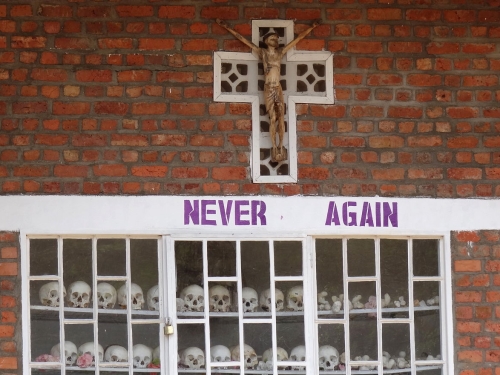
This article was originally published by the World Policy Institute on 30 September 2014.
Even a seasoned follower of political affairs might be excused for struggling to make sense of the seemingly worsening vortex of ongoing armed conflicts. Chances are, given the recent war in Gaza, the promising but still fragile developments in Afghanistan, and the twinned and tragic mess Syria and Iraq has become, his analytic brain might be reasonably overwhelmed.
But, to be sure, in the daily media discourse, some of the complicated nuances of these events have been gaining attention, making their way into public debates and helping form policy positions and diplomatic or military options. In short, news and information consumers are treated to a varied diet in relation to the coverage of world conflicts— most of which, in recent years, have been internal civil wars.
The argument holds, however, only if African civil wars are removed from the list. As it appears, those belong to a different category. For African civil wars, if the dominant media discourse is to be believed, explanations are easy and definitive.
Generally, most serious reporters and commentators tell us African conflicts, from Rwanda to South Sudan, from the Democratic Republic of the Congo to Mali, are rooted in deep-seated hatred, and usually fought along ethnic and tribal lines. In an article dating from October 1998, The Economist mapped the argument: “Most of Africa’s wars are fought between a national army and guerrillas representing different regions or ethnic groups. The tactics are to deny resources to the other side. Food is stolen, towns looted and roads mined. Villages are often burned, the young men forced to become fighters, the women and children porters. Hearts, minds and welfare are rarely matters of concern. Thousands flee to seek survival in the bush or in camps supplied by aid agencies.”
To be fair, the caricature characterization of African wars is not a privilege exclusive to journalists. Scholars have long noted a similar pattern in the way African civil wars are described in major American media. In one case, after analyzing the coverage in six major US newspapers of the 1994 civil war and in Rwanda to the civil war in Bosnia– both comparable tragedies to a large extent–three American researchers noted that reports on Rwanda were often short on issues of war tactics, rich on the use of what they coined the “language of savagery, and ethnicity/tribalism.”
From the venerable New York Times to The Washington Post, African wars are often described using language that connotes uncivilized, primitive conflict, where actors are “bloodthirsty” villains conducting “orgies” of violence. Interestingly, researchers add, “Even when describing periods of high levels of carnage in Bosnia, the phraseology in stories has a substantially different tone, while the imagery largely lacks intimations of tribal primitivism or savagery.”
That African conflicts are portrayed as impossible to understand–or easily understandable–is also due, in no small part, to the remarkable absence of African voices in most news stories about the continent’s wars. In so many stories, depictions of victims abound. Sometimes a timely lament he or she may have voiced makes its way into an illustrative quote; rarely more.
As for the main actors, the putative villains, hardly can articulate why they have plunged their countries into wars. Nor are local intellectuals called upon for their perspective. Africa, it seems, is the only continent for which experts are usually Western and living abroad. This reliance on non-African sources in media coverage of African conflict is another persisting feature scholars have long noted. Since the continent’s wars seem to be beyond rational explanation, the logic goes, it follows that its people are probably incapable of understanding and explaining their tragedies.
André-Michel Essoungou is a former foreign correspondent for the BBC World Service and Radio France International. His postings include the U.S., Canada, Switzerland, and Africa’s Great Lakes region.
For more information on issues and events that shape our world, please visit ISN Security Watch or browse our resources.

